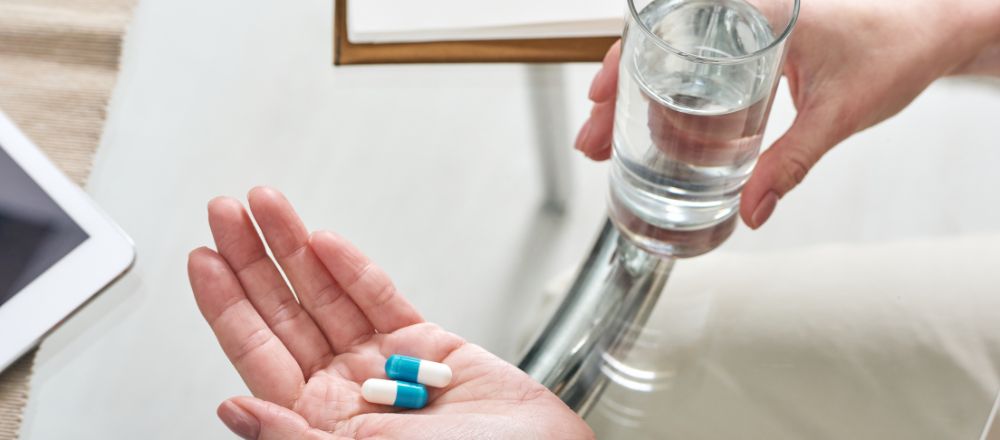Healthy Ways to Overcome Self-Medication Habits
Using any chemical to cure physical or mental diseases without a doctor's advice or consent is known as self-medicating. The most widely used substances to treat mental and emotional disorders are alcohol and different medications. Regretfully, this rarely works out successfully and may even make the issue they are attempting to solve worse. Substance misuse and mental health are frequently related.
38% of persons with mental illnesses in the US also take drugs, according to survey data. Many people use drugs or alcohol as a kind of self-medication rather than getting professional aid. Although this could offer short-term respite, the addiction that results frequently has disastrous consequences for their finances, relationships, employment, and health.
Order Anxiety Meds Now!
Stress and anxiety are an inevitable aspect of life, and although they can occasionally serve as motivating factors, they also have numerous negative effects on our health. A continual state of stress and anxiety can lead to high blood pressure and heart disease, weaken the immune system, cause stomach problems and migraines, lead to muscle strain and pain, and more. If you've been self-medicating to cope with stress, continue reading to learn more about healthy coping mechanisms and how to get help.
What Is The Need Of Self-Medicate?
Using drugs, alcohol, or other substances to deal with mental or physical suffering is known as self-medicating. It is a bad habit that can result in addiction and a host of other problems. Even though self-medication could seem like a quick fix right now, it doesn't deal with the underlying source of the problem and can instead make one's physical and mental health worse. It's critical to take action to quit self-medicating and develop more constructive coping strategies if you have been engaging in this habit.
What Is Anxiety Medication and How Does It Work?
The answer is straightforward: in order to feel better, people self-medicate. Research has shown a very strong link between addiction and mental disease for many years. This is a reciprocal relationship. Serious drug or alcohol addiction is much more common in those with mental problems like anxiety or depression. Addicts, on the other hand, frequently experience mental health disorders or at least their symptoms. Additionally, most people need to deal with and treat the other in order to heal from the first.
We all experience sadness, anxiety, and unhappiness occasionally as a result of life's challenges and disappointments. However, when depressive, anxious, angry, hopeless, or overly stressed sentiments begin to interfere with your day-to-day functioning, it may indicate that you require treatment for an underlying illness. However, it can be tempting to try to manage on your own by grabbing for a drink or popping a tablet, rather than getting therapy. Many of us have attempted to self-medicate our anxiety and uncertainty as the globe seems to be lurching from crisis to crisis during these times of severe financial and social unrest.
How To Overcome Self Medication?
You can adopt healthier coping strategies if you are aware of the connection between substance addiction and mental health. Try connecting or talking to a friend or loved one about your feelings when you're feeling anxious. Discussing the problem could help you see it from a fresh perspective and offer some relief. This might provide answers you hadn't thought of. Another way to express your feelings is through art therapy. Consider your greatest struggles, then use these emotions to create a short tale, poem, song, sculpture, painting, or drawing. By creating something, you can focus more intently and ignore your urges.
Effective Ways of Overcoming Anxiety Disorders
Another way to express your feelings is through art therapy. Consider your greatest struggles, then use these emotions to create a short tale, poem, song, sculpture, painting, or drawing. By creating something, you can focus more intently and ignore your urges.
Just as mood disorders and substance use can make it difficult to get a decent night's sleep, sleep deprivation can exacerbate anxiety, sadness, and stress. However, you can reverse the cycle and enhance your quality of sleep at night by maintaining your cleanliness and forming new routines for the day and night.
Exercise causes significant brain changes that can improve your mood, relieve stress, and build emotions of peace and well-being. Additionally, exercise can be a useful diversion, helping you to escape the negative thought patterns that frequently contribute to mood problems. Speaking with a friend or loved one in person is the most soothing thing you can do for your nervous system. You can find ways to routinely interact with family and friends to improve your mood and reduce stress and anxiety, even during social distance periods.
Why Buying Medicines From Cheap Price Online Pharmacy Is Not Safe?
Give yourself a break and get in touch with someone right now if you want to start living a healthier lifestyle free from self-medication and the never-ending loop of taking your "medicine." Our friendly and accommodating admissions staff is ready and waiting!

